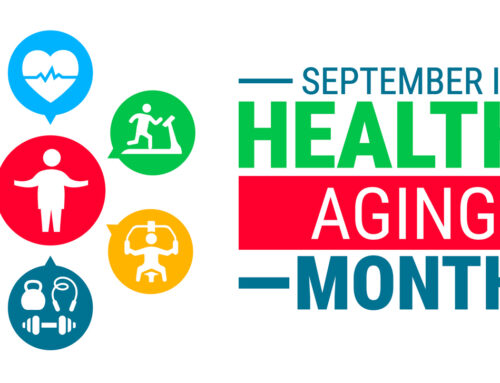Home Healthcare or assisted living? For many seniors, there comes a time when they need a little extra help and have to decide whether to stay in their own home and hire a home healthcare provider versus moving into an independent or assisted living community. There are advantages to both, so it’s essential to determine what you need and weigh the cost benefits and your personal lifestyle preferences. In South Florida, there are many options enabling you to make the best choice suited to your needs. Here are the main things to consider:
- Requirements for assistance
The first consideration is deciding on the type of home services you need. Do you simply require help with household chores, meals, or full-time assistance due to medical needs? Is your home still manageable, or has it become too much to handle because of size, layout, or accessibility to doctors, stores, family, etc.? Make a complete list of your priorities and rank them in order based on importance. At this stage, don’t worry yet about the cost; you are simply determining your requirements based on your health and activity levels.
- Lifestyle considerations
The second consideration concerns quality of life and what will provide you with the most enjoyment. Are you a homebody who loves nesting, or do you like to socialize and meet new people? Do you believe “there is no place like home,” or do you love the idea of a new adventure? How active are you? It may be an easy decision depending on your answers to these questions. Suppose you are the “home sweet home” type. In that case, many home care services can help you stay in your home and provide additional support for day-to-day household chores, meal planning, medication management, and doctor visits. However, suppose you are the type who loves activity and thrives on socializing. In that case, numerous independent and assisted living communities can provide the stimulus you crave.
- Cost Comparison
The third thing to consider is options for paying for either home healthcare or moving to a home in an assisted or independent living community. The costs will vary by state and by the level of care required. However, there are often ways to pay for either option through veteran’s benefits or long-term health insurance. There are many tools to research options, such as AARP and the National Council on Aging. However, there are also referral services for independent and assisted living services and home healthcare providers that can guide you through your options at no cost. They will help you determine budgets, schedule trips to the communities or meetings with potential caregivers, and help you choose what is suitable for you.
If you choose private duty home healthcare, different types of caregivers can provide services in the home, including:
Home Health Aides (HHAs) and Certified Nursing Assistants (CNAs)
These aides provide personal care services for seniors that exclude any medical treatment or activities requiring medical training. They provide services needed for activities for daily living (ADL), including:
- Light housekeeping
- Bathing, dressing
- Meal preparation
- Laundry
- Companionship
- Transportation
CNAs and HHAs are required to complete similar training, which varies by state, but typically includes a training course and a written and practical exam.
Companions
The distinction between a personal caregiver and a companion is that a private caregiver has formal training to provide more direct personal care services for an aging senior. Companions cannot provide hands-on assistance to their clients and are more restricted to household duties, transporting seniors to doctor appointments, grocery shopping, etc.
If a loved one is more in need of supervision and friendship than physical support, a companion would be best for them. Otherwise, a personal caregiver can perform the same duties as a companion and long-term personal care services such as bathing and grooming.
Skilled Nurses
Also known as Licensed Practice Nurses (LPNs) and Registered Nurses (RNs), nurses fulfill the broadest range of care and provide all of the services of a certified aide, as well as:
- Prefilling medication boxes
- Administering insulin
- Intravenous medications
- Wound care
- Changing catheters
Nurses must complete a college program to obtain their nursing licenses, and LPNs work under an RN’s or physician’s supervision. Nurses would be the best fit for an aging senior dealing with an illness or injury requiring constant care while still wanting to stay home.
Once you decide which service is best for you or your loved one, the next step is deciding if you want someone overnight, during the day, on an hourly basis, every weeknight or weekend, and so forth.
The final step is choosing a full-service home healthcare organization that can provide the right level of care from nurses, home health aides, or companions. You should find a service that has a strong reputation, provides training and oversite of their workers, is licensed and accredited, and has references that you can contact. Also, if you want to change your level of care, make sure they offer flexibility.
In summary, deciding on the best living environment is a very personal choice and requires ample knowledge of all your options. Taking advantage of the free services available to you allows you to weigh all the choices and decide what will make this next phase of your life as fulfilling as possible.
About Us: FirstLantic Healthcare is a home healthcare company that has been operating for over twenty years in Delray Beach, Boca Raton, Fort Lauderdale, West Palm Beach, and other South Florida cities. We provide hourly home care, care management, and free placement services. We care deeply about our clients and our first priority is always their well-being. Learn more about our client’s experiences with FirstLantic here.
To read more FirstLantic blogs, click here.
 AVAILABLE 24 HOURS A DAY/7 DAYS A WEEK
AVAILABLE 24 HOURS A DAY/7 DAYS A WEEK Careers
Careers







